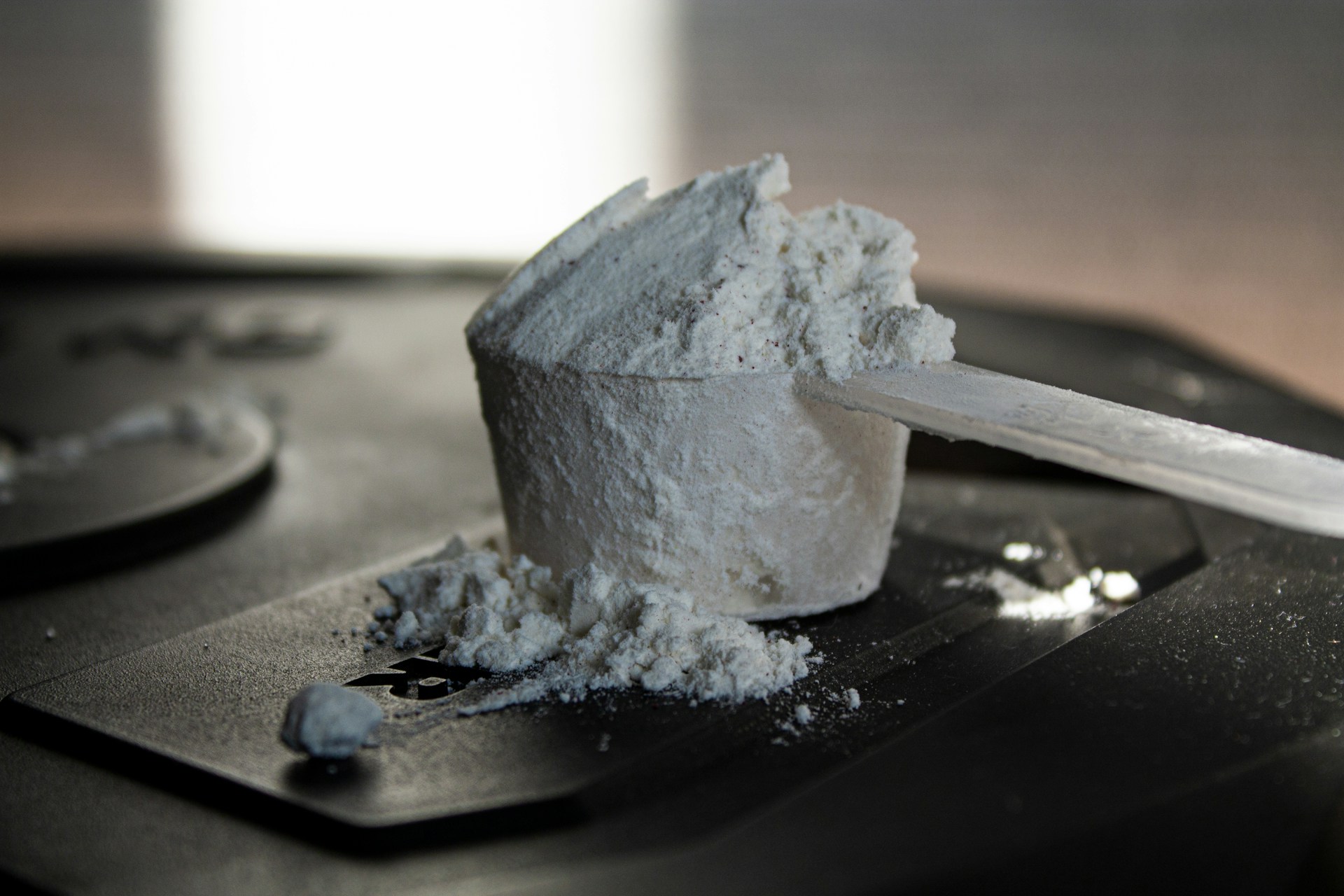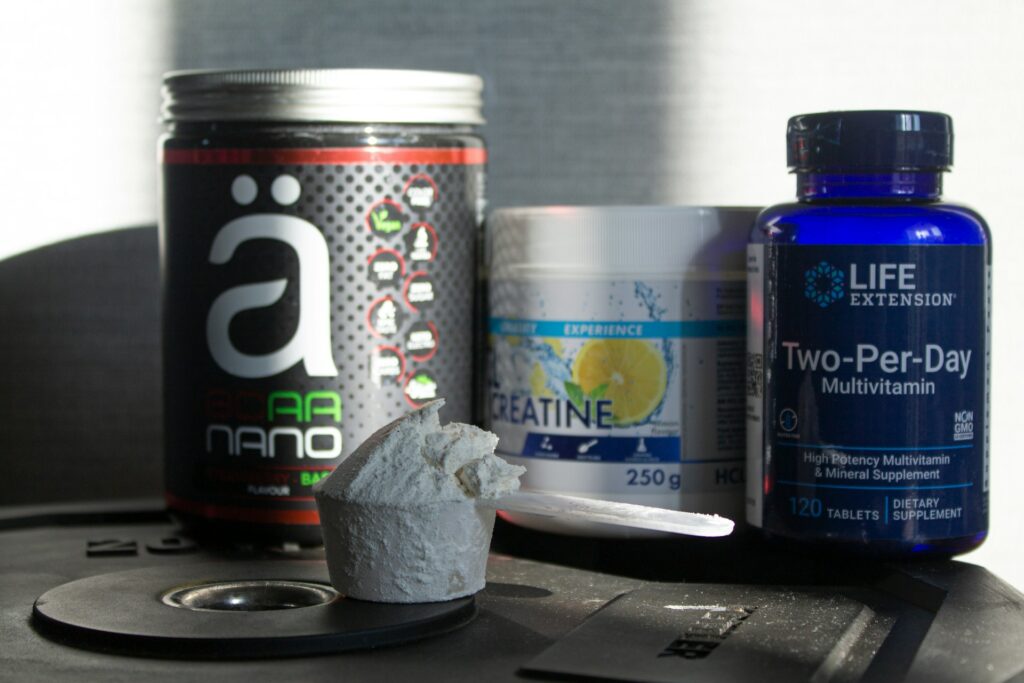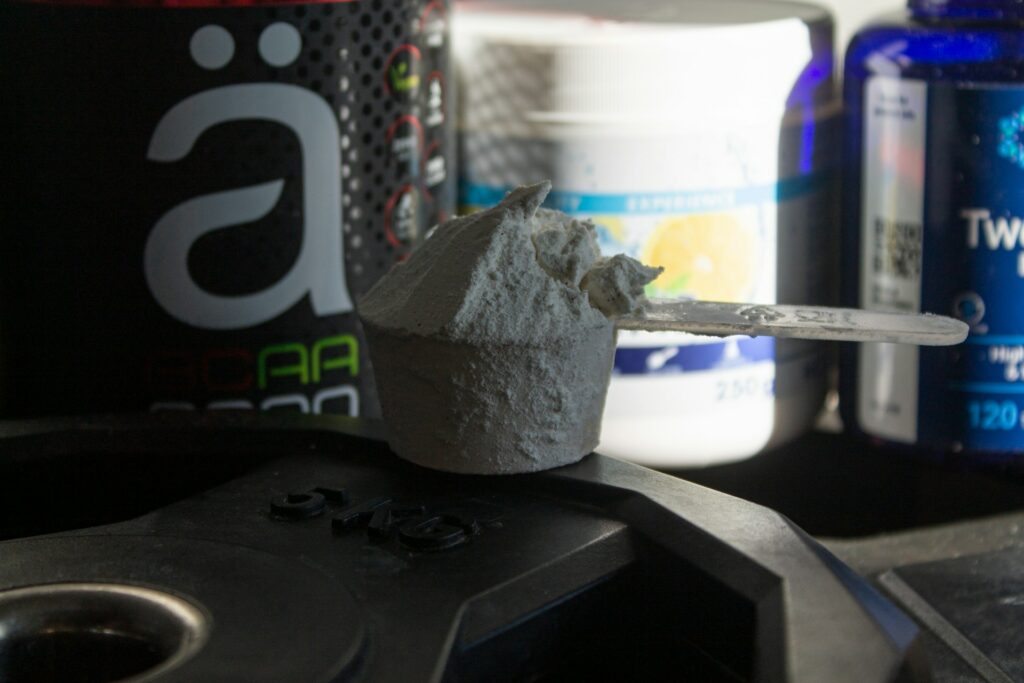The Benefits of Branched Chain Amino Acids for Muscle Recovery

- Should You Train To Muscle Failure Every Set? What You Need To Know - March 4, 2025
- Nutrition in a Hurry: Top Post-Workout Snacks for Active People - February 20, 2025
- 15 Healthy Meal Prep Recipes: Your Weight Loss Made Easy - February 18, 2025
In “The Benefits of Branched Chain Amino Acids for Muscle Recovery,” you’ll dive into the world of BCAAs and discover how these essential nutrients can significantly enhance your muscle healing process. As you explore this article, you’ll uncover how BCAAs support faster recovery times, reduce muscle soreness, and help you maintain those hard-earned gains. Whether you’re a seasoned athlete or just starting your fitness journey, understanding the power of branched-chain amino acids could be the key to reaching your muscle recovery goals more efficiently. Have you ever found yourself struggling to recover after a strenuous workout, wondering if there’s something you can do to bounce back quicker and stronger? If so, you might be interested to learn about the benefits of branched-chain amino acids (BCAAs) for muscle recovery. This article aims to walk you through what BCAAs are, how they work, and why they could be a game-changer in your fitness regimen.
What Are Branched Chain Amino Acids (BCAAs)?
BCAAs are essential amino acids that play a critical role in muscle health. The term “branched chain” refers to its chemical structure, which includes a branch off the main skeleton of the amino acid. The three BCAAs are leucine, isoleucine, and valine. Unlike other amino acids, BCAAs are metabolized primarily in the muscles rather than the liver, making them extremely beneficial for muscle recovery and growth.
The Three BCAAs: Leucine, Isoleucine, and Valine
| Amino Acid | Primary Function | Sources |
|---|---|---|
| Leucine | Stimulates muscle protein synthesis, supports healing and repair, helps with muscle recovery | Meat, dairy, legumes, soy |
| Isoleucine | Boosts energy levels, helps with muscle recovery, supports immune function | Chicken, fish, lentils, nuts |
| Valine | Promotes muscle growth and tissue repair, serves as an energy source during exercise | Dairy, mushrooms, peanuts, soy protein |
These three amino acids are integral to various muscle functions and can provide your body with the necessary tools to recover more efficiently after exercise.
How Do BCAAs Work?
BCAAs are rapidly taken up by the muscles and play a direct role in muscle protein synthesis – a process vital for muscle repair and growth. Here’s how they work in simple terms:
- Muscle Protein Synthesis (MPS): Leucine in particular is a key player. It activates the mTOR pathway, which directly stimulates MPS, helping to repair and build muscle tissues.
- Energy Production: During hard workouts, your body uses BCAAs as an additional energy source, especially when glycogen levels are low.
- Reduction of Muscle Soreness: BCAAs decrease the levels of muscle damage markers after exercise, which helps to reduce soreness.
- Enhanced Fat Burning: Isoleucine can enhance glucose uptake and utilization, which can help in reducing body fat levels.
Mechanism of Muscle Recovery
When you exercise, particularly in high-intensity or resistance training, muscle fibers undergo microscopic tears. Recovery involves repairing these fibers, making them stronger and more resilient. BCAAs provide the necessary building blocks (amino acids) and stimulate the repair process, enhancing muscle recovery and growth.
Comparing BCAAs with Other Supplements
| Supplement | Primary Benefit | How It Helps with Muscle Recovery |
|---|---|---|
| BCAAs | Stimulates muscle protein synthesis, energy production, reduces soreness | Provides essential amino acids directly to muscles, reduces muscle damage |
| Whey Protein | Complete protein source, rich in BCAAs | Provides a broad range of amino acids for overall protein needs, including BCAAs but requires digestion |
| Creatine | Increases strength, power, and muscle volume | Helps replenish ATP stores for quick energy during high-intensity exercise |
| Glutamine | Supports immune function, reduces muscle soreness | Aids in protein synthesis and reduces muscle breakdown |

Why Are BCAAs Important for Muscle Recovery?
Faster Repair and Growth
Leucine’s ability to stimulate muscle protein synthesis is crucial for muscle recovery. By kicking off the repair process, BCAAs help you build stronger muscles in less time.
Reduction of Muscle Soreness
Studies have shown that BCAAs can reduce delayed onset muscle soreness (DOMS), which often kicks in a day or two after a particularly grueling workout. By minimizing muscle damage and fostering faster repair, you’ll find it easier to stick to your workout routine without being hampered by soreness.
Energy During Workouts
When your glycogen stores are depleted, your body can turn to BCAAs for energy. This can be particularly useful in endurance events or long training sessions, helping you maintain performance levels and delaying muscle fatigue.
Enhanced Fat Loss
While the primary focus may be on muscle recovery, it’s worth noting that BCAAs can also assist in burning fat. Isoleucine, in particular, can improve metabolic efficiency and glucose uptake, making it easier to shed unwanted pounds while preserving muscle mass.
Practical Benefits
| Benefit | Description |
|---|---|
| Reduced Soreness | Less muscle pain and stiffness post-exercise |
| Faster Recovery | Quicker return to training at full intensity |
| Muscle Preservation | Minimized muscle loss during calorie restriction |
| Enhanced Performance | Sustained energy and endurance levels |
How to Incorporate BCAAs Into Your Diet
Natural Food Sources
While supplements are convenient, you can also get BCAAs from many whole foods. Here’s a look at some rich sources:
- Meat and Poultry: Beef, chicken, and turkey are all excellent sources of BCAAs.
- Fish: Tuna, salmon, and cod provide a high content of these amino acids.
- Dairy: Milk, cheese, and yogurt are not only good for calcium but also for BCAAs.
- Legumes: Beans, lentils, and chickpeas offer a plant-based source for vegetarians.
- Nuts and Seeds: Almonds, walnuts, and sunflower seeds are great options for snacking.
Supplement Options
If getting adequate BCAAs through diet alone proves challenging, supplements are an excellent alternative. Here are factors to consider when selecting a BCAA supplement:
- Ratio: Look for a 2:1:1 ratio of leucine, isoleucine, and valine, respectively. This is considered the most effective blend.
- Form: They come in powders, capsules, and ready-to-drink options. Powders tend to be the most versatile.
- Additional Ingredients: Some supplements come fortified with vitamins, electrolytes, or other performance-enhancing compounds.
Timing for Maximum Benefits
When it comes to timing, there are optimal windows for taking BCAAs to maximize their benefits:
- Pre-Workout: Taking BCAAs before exercise can help provide additional energy and reduce muscle fatigue.
- Intra-Workout: Sipping on BCAAs during your workout can help sustain energy levels and reduce muscle breakdown.
- Post-Workout: Consuming BCAAs after exercising aids in muscle repair and growth, helping you recover faster.
Timing Guide
| Timing | Benefit |
|---|---|
| Pre-Workout | Increased energy, reduced fatigue |
| Intra-Workout | Sustained energy, minimized muscle breakdown |
| Post-Workout | Enhanced muscle repair and growth |

Who Can Benefit from BCAAs?
Athletes and Bodybuilders
For athletes and bodybuilders, muscle recovery is synonymous with performance gains. BCAAs not only aid in faster recovery but also help in preserving muscle mass, which is crucial during intense training cycles.
Endurance Athletes
For marathon runners, cyclists, and triathletes, muscle fatigue and breakdown are common issues. BCAAs can help mitigate these problems, providing an extra source of energy and reducing muscle damage.
Fitness Enthusiasts
Even if you’re a casual gym-goer or someone who engages in moderate physical activity, BCAAs can still benefit your muscle recovery process. They help you bounce back quicker, allowing you to stick to your fitness routine consistently.
Dieters and Weightlifters
Those on calorie-restricted diets often face muscle loss. Incorporating BCAAs helps protect muscle tissue while mobilizing fat stores, aiding in more effective weight loss.
Are BCAAs Safe?
General Safety
For most people, BCAAs are considered safe when taken in recommended dosages. They are simply essential amino acids that your body requires, particularly during periods of physical stress.
Potential Side Effects
While side effects are generally rare, some individuals might experience:
- Gastrointestinal Issues: Such as bloating or upset stomach.
- Fatigue: Excessively high doses can sometimes cause fatigue or loss of coordination.
Medical Conditions and Considerations
If you have a medical condition—such as kidney disease or diabetes—or are taking medications, it’s advisable to consult with your healthcare provider before starting a BCAA supplement regimen.

How to Choose the Right BCAA Supplement
Brand Reputation
Opt for well-known brands that prioritize quality and have positive reviews. Research and read customer testimonials.
Ingredient Transparency
Look for products that list all their ingredients clearly. Avoid those with unnecessary fillers or additives.
Certification and Testing
Choose supplements that have been third-party tested for purity and potency. Certifications from organizations like NSF or Informed-Sport can provide added assurance of quality.
Price and Value
While it’s important to consider cost, don’t compromise on quality. Higher-priced products from reputable brands typically offer better quality and efficacy.
Debunking Common Myths About BCAAs
Myth 1: BCAAs Are Just for Bodybuilders
While bodybuilders benefit greatly from BCAAs, these amino acids are valuable for anyone engaging in physical activity. From runners to weekend warriors, BCAAs can help with muscle recovery, energy levels, and overall performance.
Myth 2: You Can Get Enough BCAAs from Food Alone
While it’s possible to get BCAAs from food, many people find it challenging to consume the necessary amounts through diet alone—especially those with higher protein needs or restrictive diets.
Myth 3: More Is Always Better
Like everything in nutrition, moderation is key. Overconsumption of BCAAs may lead to adverse effects like fatigue and loss of coordination. Stick to the recommended dosages.
Real-World Success Stories
Case Study 1: Mark the Marathoner
Mark, a 34-year-old marathon enthusiast, was struggling with muscle soreness and fatigue, hampering his training schedule. After incorporating BCAAs into his pre and post-workout routine, he observed a noticeable improvement in recovery times and overall performance.
Case Study 2: Sarah the Weightlifter
Sarah, a competitive weightlifter, found that her muscle protein synthesis significantly improved with the inclusion of BCAAs in her diet. She reported quicker recovery between lifting sessions and saw her muscle mass and strength increase over time.
Case Study 3: Dave the Weekend Warrior
Dave, a 45-year-old corporate professional, enjoyed weekend soccer games but often dealt with next-day muscle soreness. With the addition of BCAAs, his recovery improved, allowing him to engage in physical activities with less discomfort.
How to Monitor Your BCAA Intake
Keeping a Journal
Track your BCAA intake along with your workout regime and dietary habits. Note any changes in performance, recovery, and overall well-being.
Listening to Your Body
Be attuned to how your body responds to BCAAs. If you experience any adverse effects, it might be worth reviewing your dosage or consulting a medical professional.
Regular Assessments
Periodically assess your muscle recovery, energy levels, and performance metrics to see if BCAAs are making a positive impact. Adjust as needed based on your goals and physical demands.
Future of BCAAs in Sports Nutrition
Emerging Research
Ongoing research continues to explore the full spectrum of benefits that BCAAs can offer. Studies are examining their role in immune function, mental clarity, and extended endurance beyond just muscle recovery.
Product Innovations
With advancements in sports nutrition, expect to see more innovative BCAA products that combine other beneficial compounds like electrolytes, adaptogens, and antioxidants to further enhance their efficacy.
Integration with Personalized Nutrition
The future of sports nutrition is moving towards personalization. Genetic testing and personalized fitness plans could make BCAAs a tailored recommendation based on individual needs, making them even more effective.
Final Thoughts
Branched-chain amino acids for muscle recovery offer a broad range of benefits that can enhance your fitness journey. Whether you’re an athlete, a casual gym-goer, or someone looking to improve their overall physical well-being, BCAAs may be worth considering. From reducing muscle soreness and boosting energy levels to fostering faster muscle repair, they provide comprehensive support for muscle health.
Armed with this knowledge, you can make an informed decision on whether BCAAs are right for you. And remember, your fitness journey is unique—so listen to your body, track your progress, and adjust as necessary to achieve your goals.
If you’re ready to take the next step toward improved muscle recovery and performance, why not give BCAAs a try? You might just find they are the missing link you’ve been searching for.
Table of Contents







